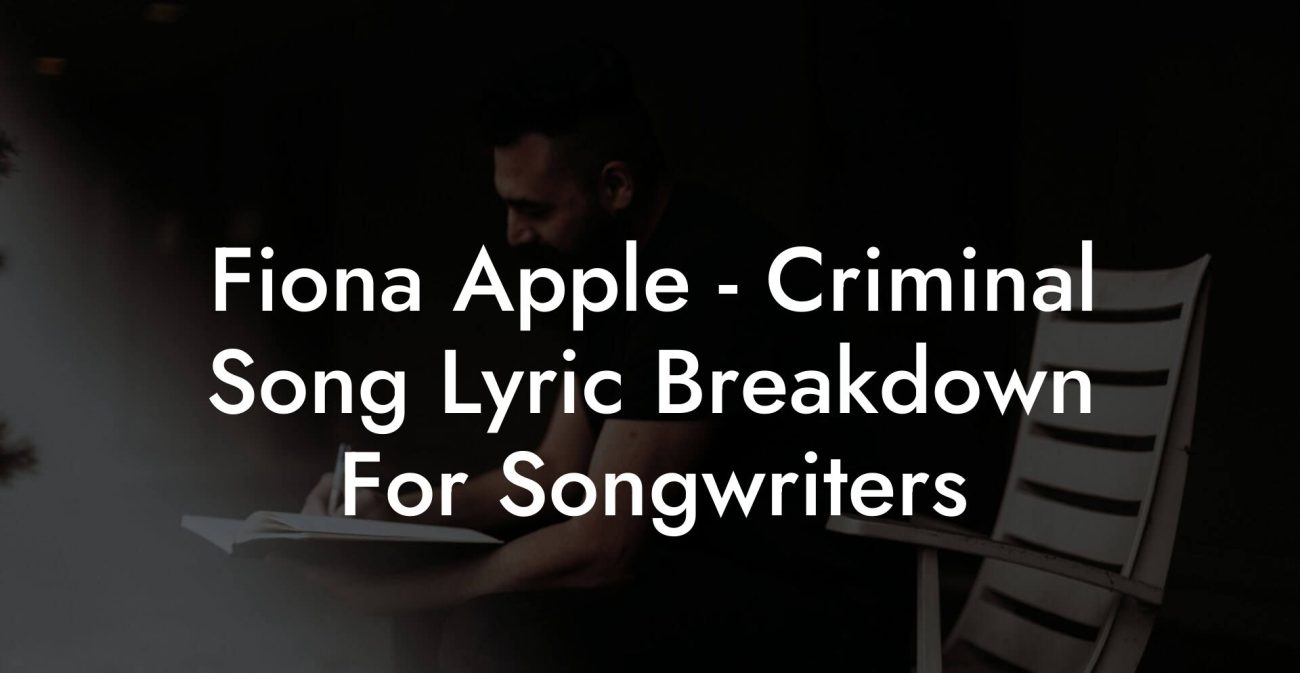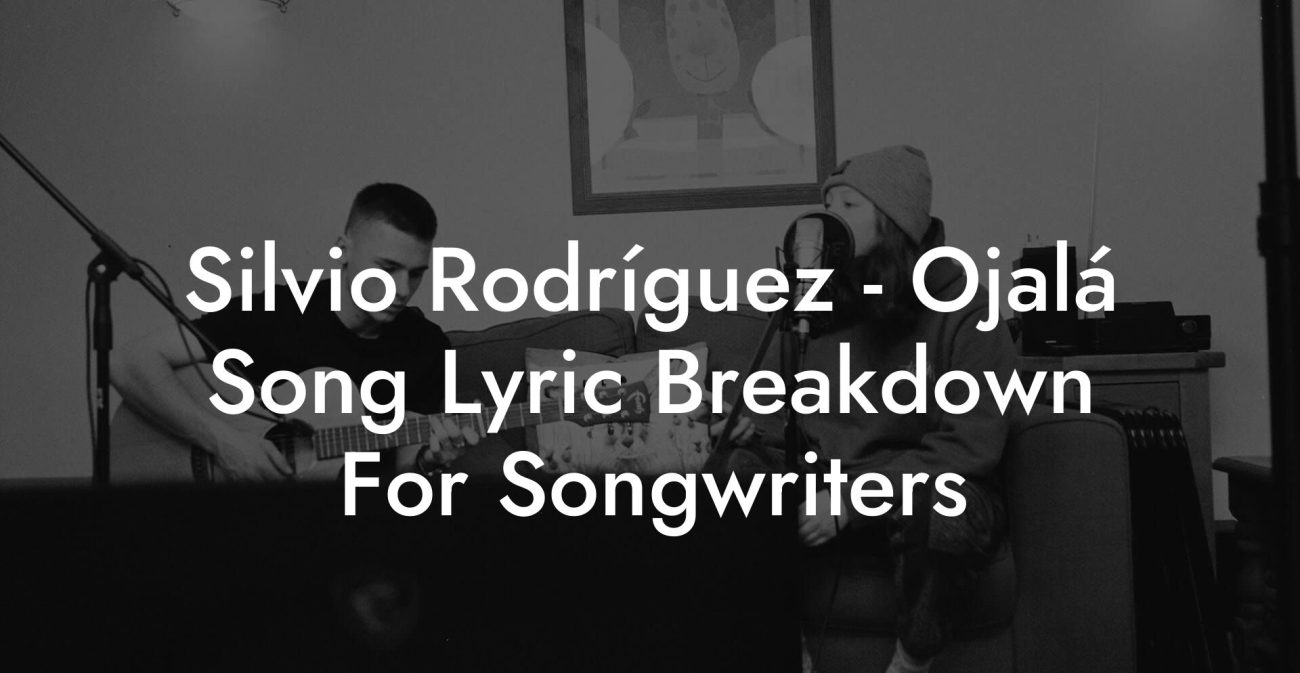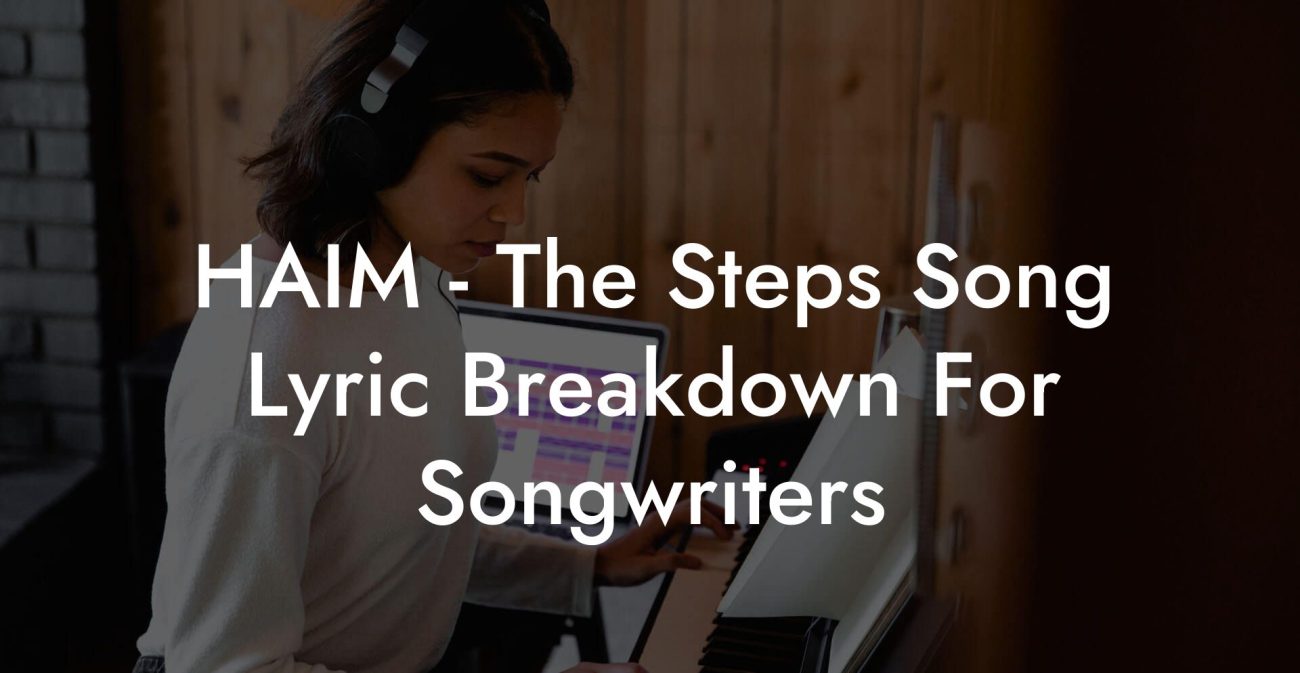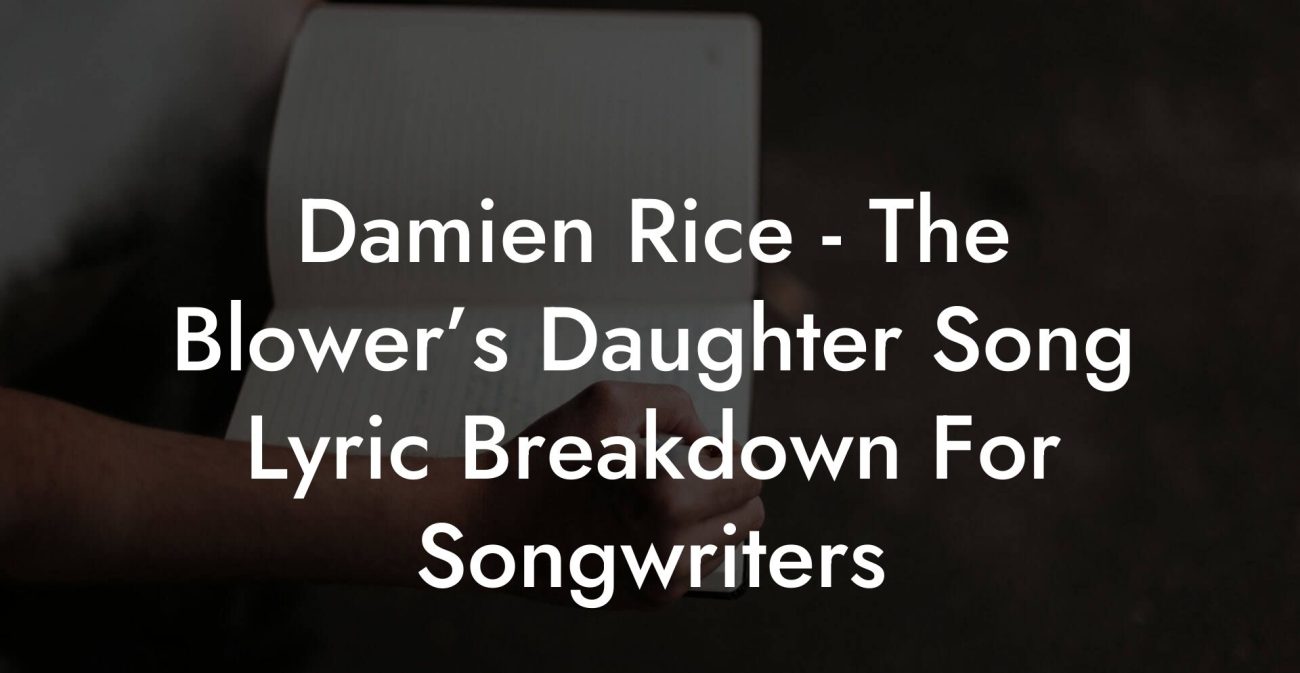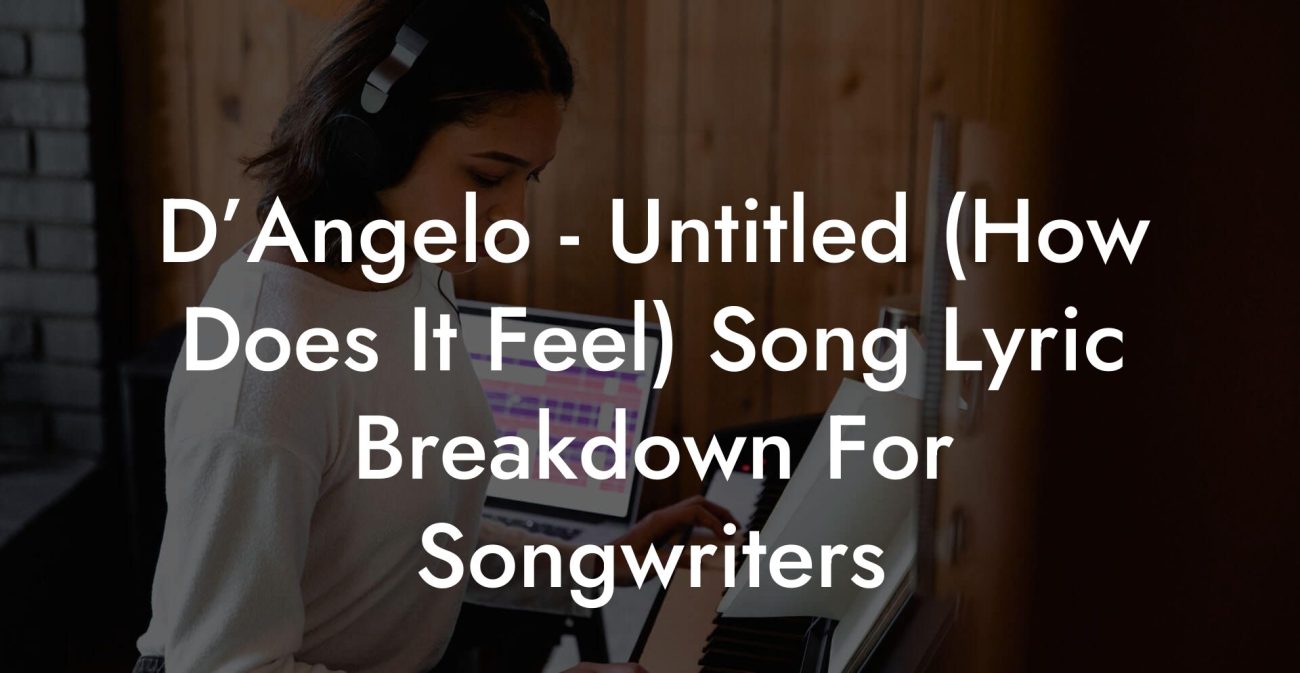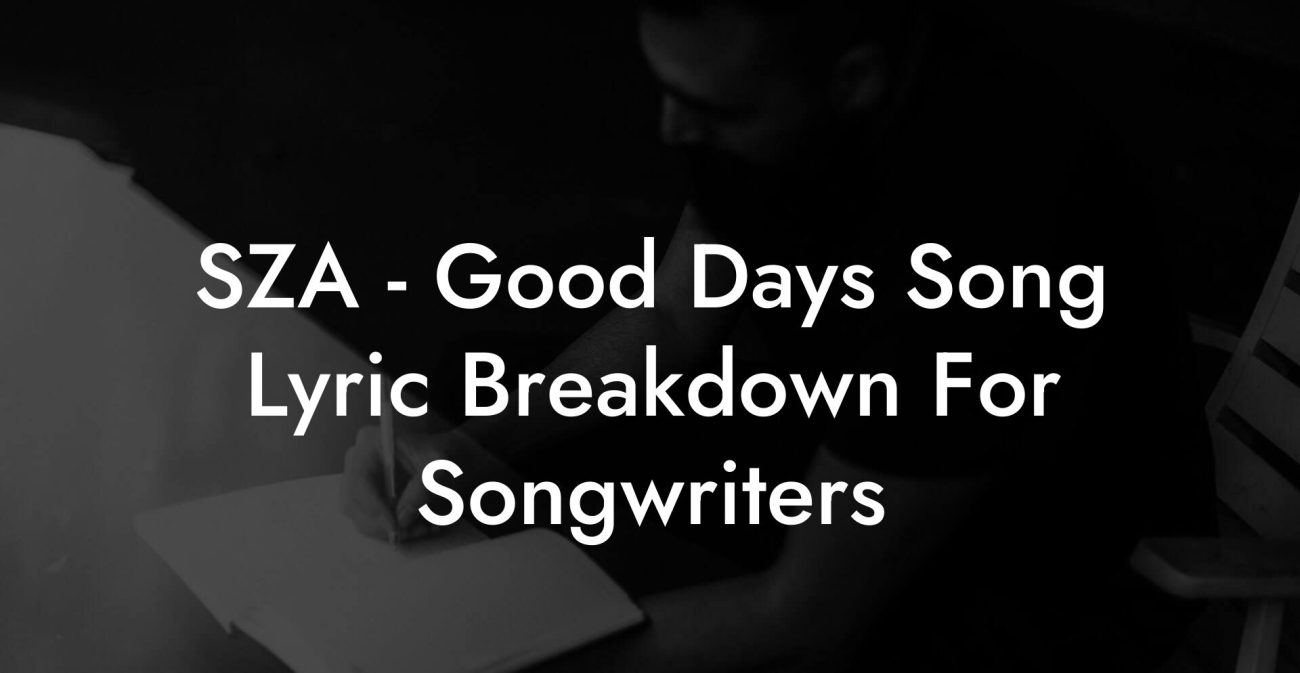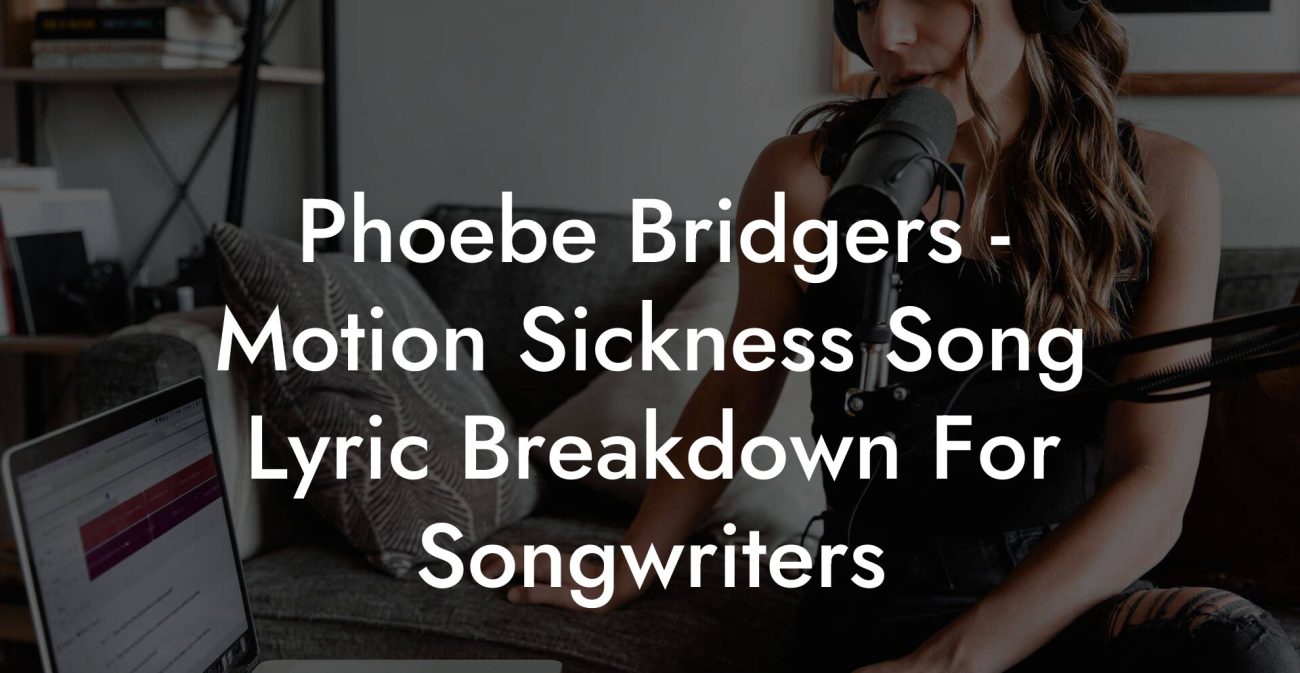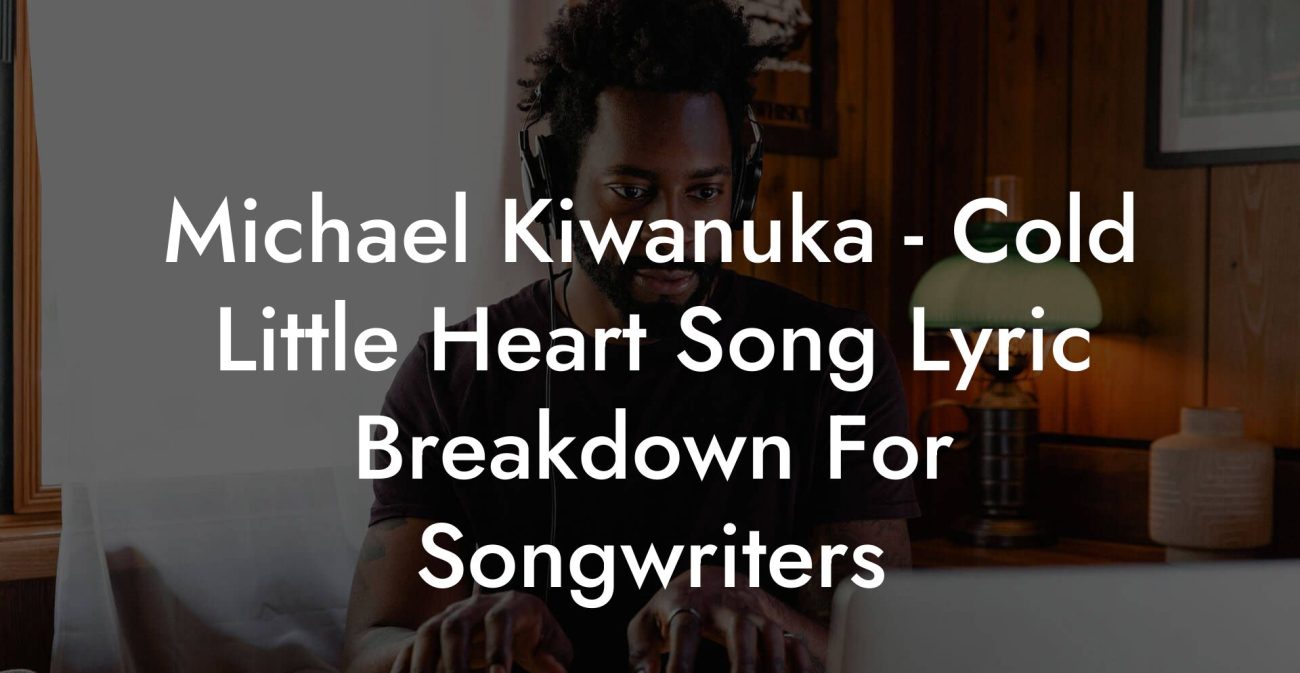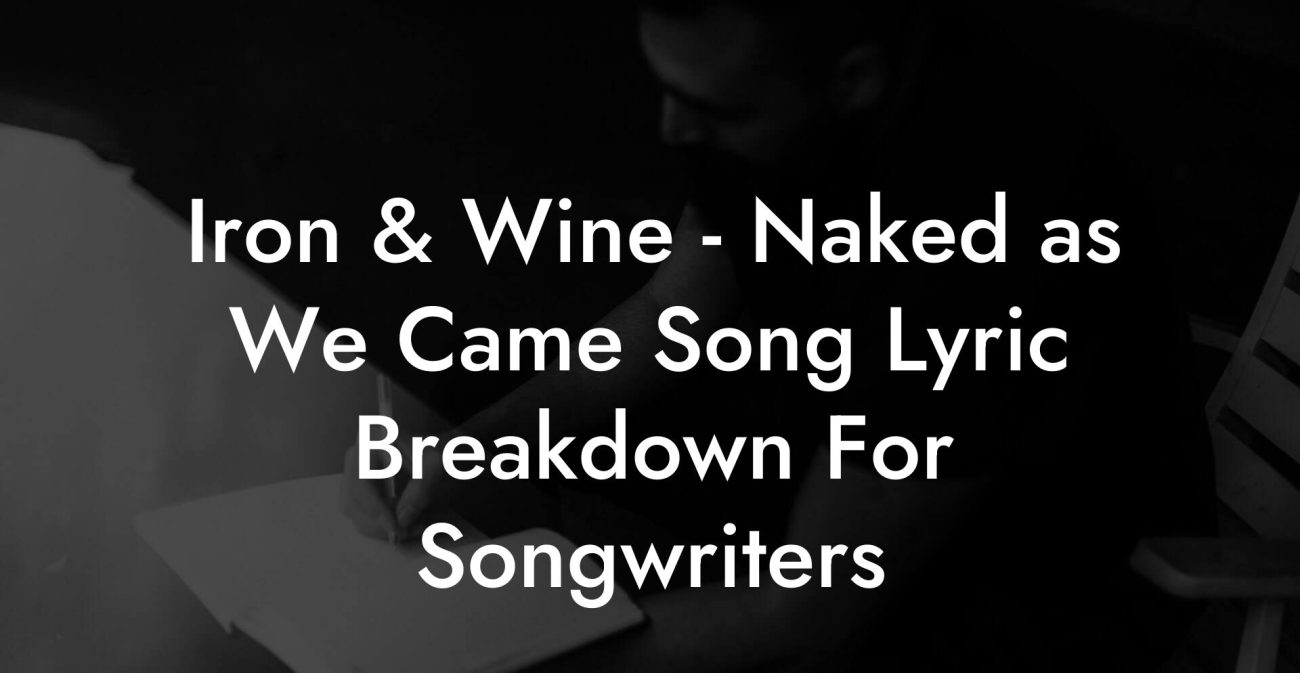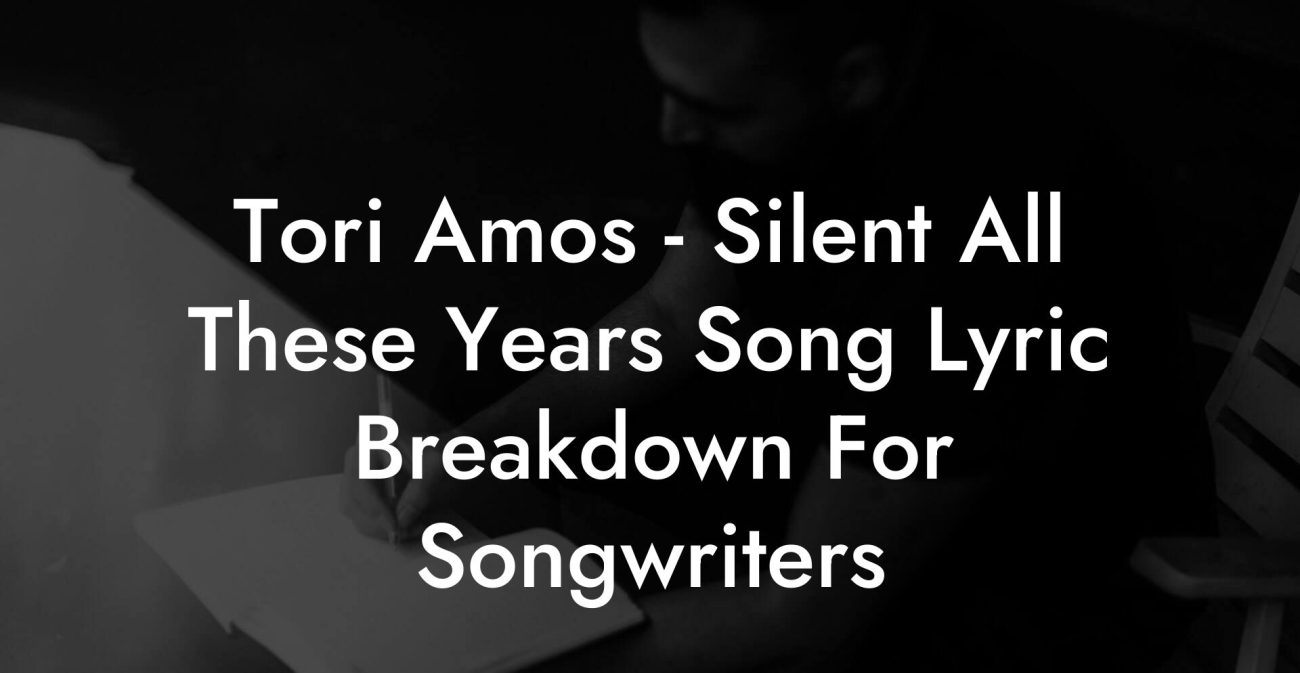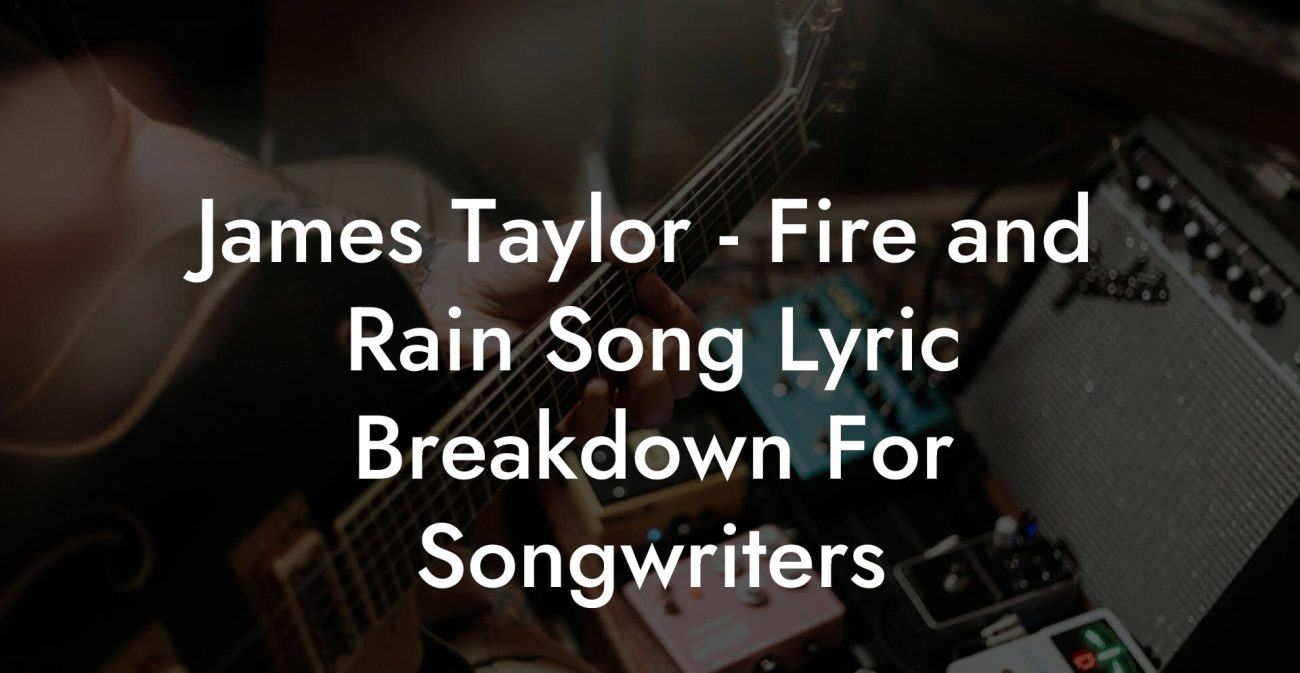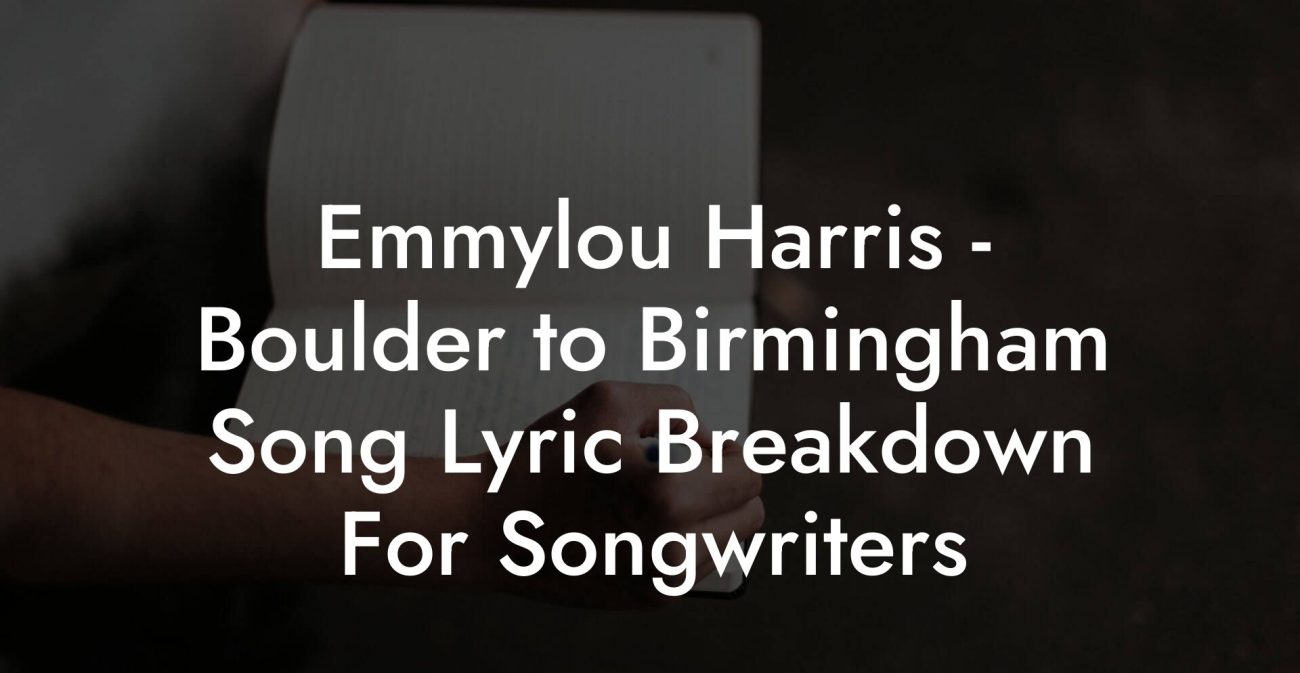Songwriting Advice
Bob Marley - Redemption Song Song Lyric Breakdown For Songwriters
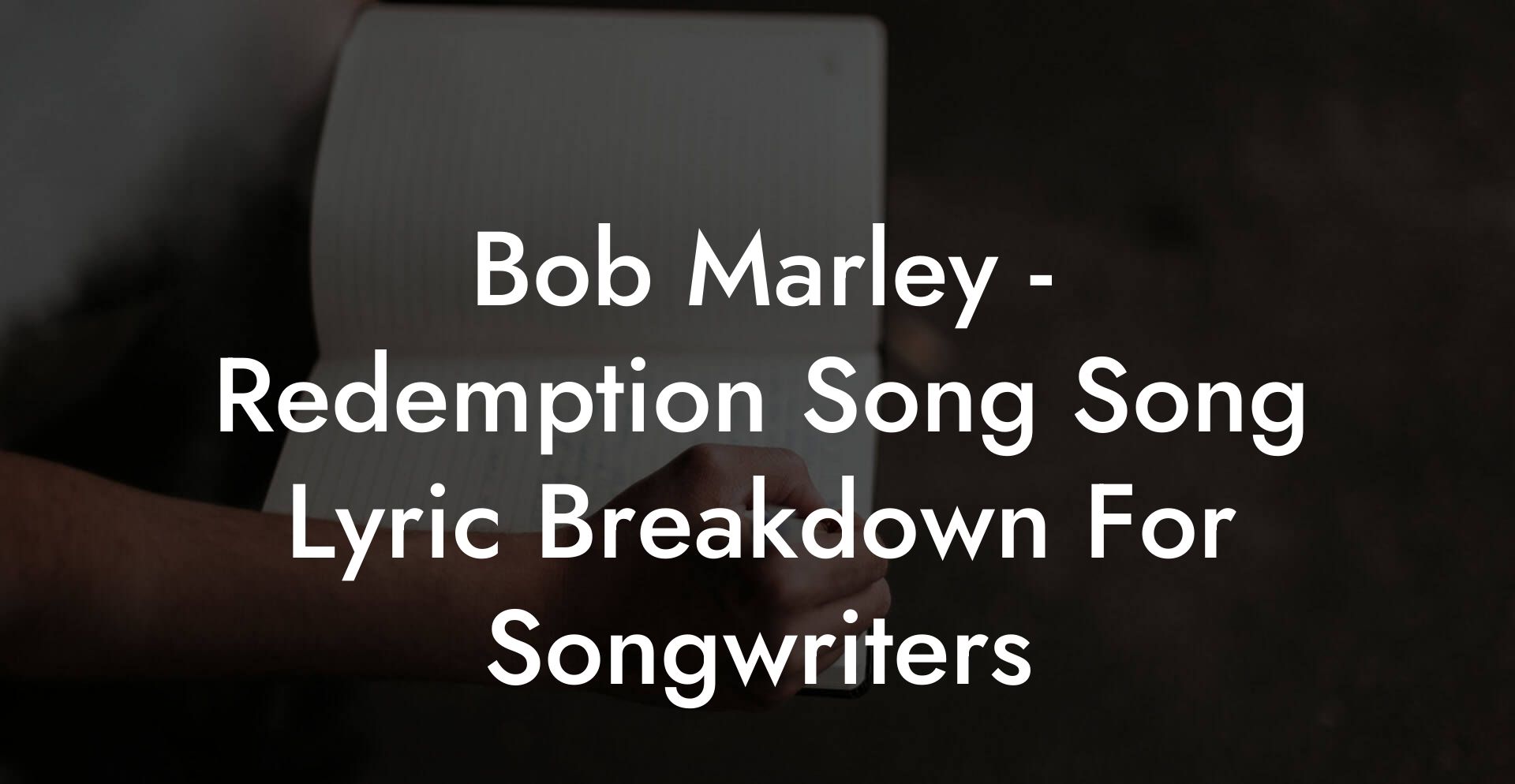
One song can teach you how to write a truth that lands like a punchline and a sermon at the same time. Bob Marley wrote Redemption Song late in his life. It is stripped down, acoustic, and relentless in its clarity. There is no studio gloss to hide behind. The words are the thing. For songwriters, that is an advanced course in doing more with less.
Quick Interruption: Ever wondered how huge artists end up fighting for their own songs? The answer is in the fine print. Learn the lines that protect you. Own your masters. Keep royalties. Keep playing shows without moving back in with Mom. Find out more →
Quick Links to Useful Sections
- Why Redemption Song matters to songwriters
- Short history you actually need
- Read the opening lines like a pro
- Line by line breakdown
- Old pirates, yes they rob I
- Minutes that follow
- How long shall they kill our prophets while we stand aside and look
- Verse vs chorus, Marley uses a refrain that is not a traditional chorus
- Poetic devices Marley uses and how to steal them legally
- Prosody, so your words actually sit
- Real life example
- Melody and harmony lessons from the song
- Arrangement choices that strengthen a lyric
- How Marley turns politics into intimacy
- Lyric devices you can practice right now
- Device 1, the historical doorway
- Device 2, the moral question
- Device 3, the reclaimed verb
- Practical exercises based on Redemption Song
- Words and imagery to steal, not copy
- Translating the tone into other genres
- Explaining terms without the teacher voice
- How to handle quoting a historical figure in your music
- Performance notes, because delivery changes everything
- Common mistakes when writing songs like Redemption Song
- Action plan you can use today
- Examples of before and after edits inspired by Marley
- How to keep the message without sounding preachy
- Recording tips for a redemption style demo
- FAQ
This article reads the lyrics like a detective reads a confession. We will map the poem, explain every reference that matters, and translate techniques into practical drills you can use immediately. If you want to write songs that change heads and bodies the way Marley did, this is your blueprint. The voice is honest, sharp, and a little rude when needed. You will get history, music theory explained without the jargon, prosody checks, melody notes, arrangement ideas, and hands on exercises that will push you to finish songs that mean something.
Why Redemption Song matters to songwriters
Redemption Song is a case study in restraint. There is no band carrying defective lyrics. The acoustic guitar and Marley voice alone expose everything. When arrangements are simple, every syllable must pull its weight. That environment teaches you where to spend your words, how to deliver a line so it sings like a sentence, and how to turn a political idea into a personal invitation.
Beyond craft, the song is a primer in moral economy. Marley takes a historic idea and makes it immediate. The line Emancipate yourselves from mental slavery, none but ourselves can free our minds comes originally from Marcus Garvey. Marley uses it like a lens. He does not lecture. He sings as if he is talking to a friend who keeps making bad choices. That tone is often more persuasive than righteous fury.
Short history you actually need
Redemption Song was released on the 1980 album Uprising. By then Marley had been a global voice for years. He was ill, and this song is widely read as part final testament, part call to action. The acoustic approach strips away rhythm section and horns so that the listener sits face to face with the lyric. Marcus Garvey is a key reference. Garvey was a Jamaican political leader who advocated for black empowerment in the early 20th century. His speech gave Marley the line that opens the song. Knowing that history helps you see how songs can carry ideas forward across generations.
Read the opening lines like a pro
The song opens with the Garvey line. It is not a tiny detail. It sets the frame. Start there when you write. If you are going to quote someone, put it at the entrance so the listener knows the conversation topic immediately.
Emancipate yourselves from mental slavery, none but ourselves can free our minds
Why this works
- It is an imperative. The speaker tells us to act. Imperatives create agency and urgency.
- It uses the word emancipation. That is a heavy, historical word, but Marley follows it with a plain clause none but ourselves can free our minds. The heavy and the plain balance each other.
- It supplies both a diagnosis and a remedy in one breath. That compactness is songwriting gold.
Line by line breakdown
Old pirates, yes they rob I
Old pirates, yes they rob I, Sold I to the merchant ships
These opening bars move from metaphor to personal testimony immediately. The voice toggles between collective memory and first person. Using I after the generalized old pirates makes the historical feel personal. For songwriters, observe how Marley keeps syntax simple and concrete. Pirates and merchant ships are tangible images. They do the emotional heavy lifting.
Minutes that follow
Many attempt to say slavery in plain modern terms. Marley chooses imagery that is vivid and slightly archaic. That choice keeps the line from being preachy. Pirates carry outlaw glamour, which gives the listener an entry point. Merchant ships introduce commerce and trade. You have story in two nouns and a verb. That is economy.
How long shall they kill our prophets while we stand aside and look
Here the question becomes moral. It is blunt. The grammar is conversational. The rhetorical question moves the listener from empathy to culpability. You feel accused. That is a songwriting tactic. Make the listener feel slightly uncomfortable. That keeps them engaged and likely to act emotionally after the song ends.
Verse vs chorus, Marley uses a refrain that is not a traditional chorus
Redemption Song does not have a chorus that repeats the same hook word for word. Instead it uses a repeated motif, a cluster of lines around redemption, learning to overcome memory, and freedom. That approach shows you can hold an audience without a singalong chorus if every verse returns to a strong image and a persistent question.
Poetic devices Marley uses and how to steal them legally
- Imperative voice. Commands like Emancipate yourselves invite action. Use imperative lines when you want to galvanize a listener.
- Direct quote as authority. Quoting Garvey adds weight. If you quote a public figure, use the quote where it frames the song. If you quote a living writer, get permission or at least attribute transparently.
- Concrete nouns. Pirates, ships, cannons, ropes. Nouns that can be seen or touched are stronger than abstractions.
- Rhetorical question. Asking How long while listing wrongs makes the listener feel implicated, which is a strong emotional lever.
- Repetition for prayer. The repetitive ending lines turn the song into a mantra. Repetition for emphasis works when the words are meaningful and the melody supports the repeat.
Prosody, so your words actually sit
Prosody is the alignment of natural speech stress with musical stress. If a strong word falls on a weak beat, the line will feel off, even if the lyric is brilliant. Marley is a master at prosody. Listen to the way the stressed syllable of emancipate lines up with a sustained note. Or how the word free is held and elongated to let the meaning breathe.
How to test prosody on your lines
- Read the line out loud as if you are in conversation.
- Mark the syllables you naturally stress.
- Play your chord and try to sing the line. If stressed syllables land on weak beats, rewrite.
Real life example
Imagine you write the line I feel the pain and you put it on a one beat note. The stress in feel and pain are similar, so both need weight. If the phrase sits on a pickup, the line will not land emotionally. Shift the line, or adjust the melody so the stress falls where the music gives space. That is prosody in practice.
Melody and harmony lessons from the song
Redemption Song is often played solo. That means melody must carry emotional contour without harmonic fireworks. Marley keeps melodies close to speech. The intervals are not extreme. The contour rises on urgency and falls on acceptance. That is a simple model you can copy.
Harmony is sparse. The song stays mostly in a diatonic area with occasional modal color. The point is not harmonic surprise. The point is clarity. For writers, this is a reminder. Complexity can be a mask. If you want words to matter, make harmony serve the lyric rather than distract from it.
Arrangement choices that strengthen a lyric
Think of arrangement as how you seat the words. Marley strips the production to the minimum. That is a choice that says the lyric is the headliner. You do not always need that level of austerity. But you should always make a similarly decisive choice. Ask yourself what element would most help the line. Do not add instruments just because the budget allows it.
- Start small. A single instrument under a strong lyric keeps attention.
- Add texture sparingly. A soft harmony can make repetition sacred.
- Use silence. Pauses before a key line create gravity. Marley uses space like punctuation.
How Marley turns politics into intimacy
Many protest songs feel like a lecture. Marley avoids that. He uses personal voice, everyday images, and direct address. That combination turns large systemic critique into a bedside talk. When you write about politics or trauma, ask how you can make the listener feel you are speaking to them alone. That intimacy increases persuasion.
Lyric devices you can practice right now
Device 1, the historical doorway
Start with a public quote, a historical phrase, or a news headline. Use it as the first line to frame your song. Then write two verses that bring that big idea into a single person's kitchen. This practice teaches you how to scale the political down to the human level.
Device 2, the moral question
Write a one line rhetorical question that addresses complicity. Place it at the end of a verse. Use the chorus or refrain to offer a small answer or a refusal. The drama of question and partial answer creates forward motion.
Device 3, the reclaimed verb
Pick one verb that feels heavy and repeat it across the song with different objects. Example, the verb free can be used with mind, hands, home, name. Each usage deepens meaning without changing grammar much.
Practical exercises based on Redemption Song
- Quote first. Find a short historical quote that matters to you. Build a one minute acoustic loop. Sing the quote on an open vowel to find a melody. Write two verses that show a small scene where that quote matters. Ten minutes.
- Prosody drill. Take a verse you have. Read it out loud while clapping a simple 4 4 beat. Mark stressed syllables. Rewrite lines so stressed syllables fall on the strong beats. Twenty minutes.
- Silence as punctuation. Record your vocal and insert a one second pause before the last line of a verse. Notice how the following line lands differently. Repeat with different pause lengths. Fifteen minutes.
- Refrain without chorus. Write a song that has no repeating chorus. Instead pick one line that returns at the end of each verse with slight changes in wording. Notice how listeners still find a hook in repetition.
Words and imagery to steal, not copy
Do not copy Marley. Do not copy the Garvey quote and put it in your chorus unchanged without thinking. Do borrow his strategy. Pick concrete nouns, short imperatives, and a moral question. Use image pairs, like pirates and merchant ships. Put a specific object in a line to anchor feeling. When a line uses an object, the listener can picture it, and the emotion becomes easier to hold.
Translating the tone into other genres
Redemption Song's acoustic truth can be adapted to hip hop, pop, or indie rock. The key is not the guitar. The key is the stance. If you move the song into a production heavy genre, do not add busy elements during lines that matter. Let the beat breathe when the lyric asks for space. Use a spare arrangement for the verses, then open up for a band moment when the message broadens. That borrowed discipline keeps the lyric audible even with more production.
Explaining terms without the teacher voice
Prosody, we already covered it. Here are some other terms you might see and what they actually mean to you as a songwriter.
- Topline, this is the melody and lyric that sit above the instruments. If you are the singer, you own the topline. Practice topline work by singing on vowels until a melody appears, then add words.
- Rubato, this means pushing and pulling the tempo, like speaking a sentence with feeling. Marley uses slight rubato to make a line feel like conversation.
- Tonic, the home note of a key. When a line wants to resolve, it often lands on the tonic or on a chord that feels like rest.
- Modal color, using notes that are not strictly in the major or minor scale to flavor a chord. You can borrow a note to make a moment bittersweet.
How to handle quoting a historical figure in your music
If you plan to quote, do two things. First, be accurate. Misquoting undercuts credibility. Second, give the quote context within the song. Marley did not just repeat Garvey. He used the quote as a frame and then added personal testimony. That combination feels honest. If the quote is from a living person or from a copyrighted work, seek permission if you plan to monetize a recording. For historical figures who are long dead, their words may be in the public domain, but do your research to be safe.
Performance notes, because delivery changes everything
Marley sings Redemption Song like he is speaking to you while you brush your teeth. That intimacy is rehearsed. You can practice it by recording a spoken version of the song and listening for lines that need softening or hardening. Some lines need whisper. Some need bearing weight. Make a choices list before you record, then fight to keep performance truthful rather than theatrical.
Common mistakes when writing songs like Redemption Song
- Trying to do too much. The strength of this song is a single idea expressed clearly. If your song tries to solve every injustice in five verses, the listener will get lost. Choose a single angle.
- Overwriting with fancy language. Big words are fine when they fit. But they can sound posed. Use the simplest word that says the truth.
- Forgetting prosody. Fancy line, flat beat. That hurts. Always speak your lyric before setting it to music.
- Arrangement masking weak lines. If a lyric is soft, do not hide it in reverb and synths. Either fix the lyric or give it a simpler setting.
Action plan you can use today
- Pick a historical phrase, or a quote you care about. Place it as the first line of a draft.
- Write a single sentence that states the emotional promise of the song. Keep it under twelve words.
- Write two verses that show a concrete scene where that promise matters. Use objects and actions, not explanations.
- Do a prosody check. Speak your lines. Move stresses to match the beat.
- Record a stripped demo with one instrument and your voice. Use silence. Let the words breathe.
Examples of before and after edits inspired by Marley
Before: People need to get free from their bad thinking.
After: Emancipate yourselves from mental prisons built by other men.
Before: They hurt our leaders and we do nothing.
After: How long shall they kill our prophets while we stand aside and look.
Notice how the after lines use image, question, and a direct command or accusation. That is the shift you want to practice.
How to keep the message without sounding preachy
Marley keeps the tone conversational. He accepts ambiguity. He includes longing. Even when the music is instructive, he remains human. When you write songs about ideals, let your vulnerability show. Admit doubt. That admission opens listeners rather than pushes them away.
Recording tips for a redemption style demo
- Use a warm mic close to the mouth to capture breath and intention.
- Record a spoken guide track to set phrasing and timing.
- Edit the vocal for clarity, not for perfection. Leave small flaws. They are honesty signals.
- When in doubt, remove the reverb.
FAQ
What does Redemption Song mean
At its core, Redemption Song is about liberation. It speaks to mental freedom, historical trauma, and the choice to act. Marley uses history to frame an urgent present. The song asks listeners to free themselves from psychological chains and to take responsibility for their own liberation.
Who said Emancipate yourselves from mental slavery originally
The line is associated with Marcus Garvey, a Jamaican political leader from the early 20th century. Marley echoes Garvey to bring a historic voice into modern music. When you use a quote, place it where its authority benefits your narrative.
Can I quote a historical figure in my songs
Yes, often you can, but check copyright if the source is not public domain. For public domain texts, attribution is still a good practice. If the quote is iconic, use it as a framing device rather than the entire message.
How do I write political songs that do not sound dated
Make the political personal. Use current specifics as scene setters. Avoid slogans that date. Instead, write scenes and images that show what a policy or system does to a human life. Then ask a question that invites action rather than condemning the listener.
What production choices support this style
Sparse production. Intimate mic placement. Minimal effects. Let the lyric be upfront. Use small harmonic fills to support rather than distract. Silence is part of the arrangement. Use it.

